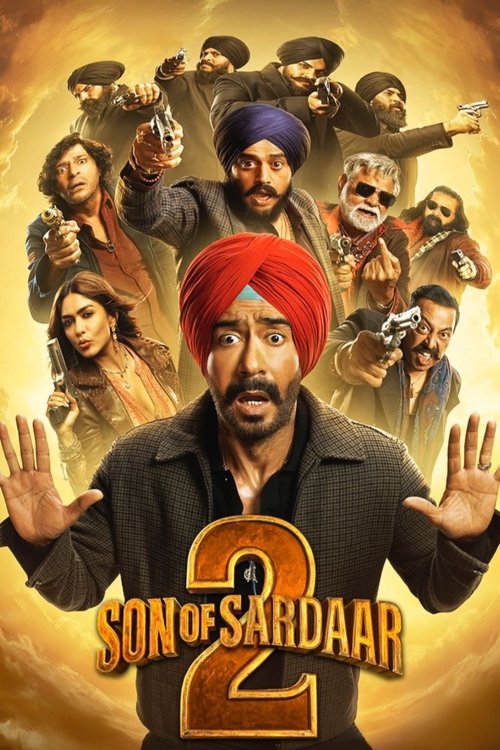The Nightingale is an intense war drama film directed by Jennifer Kent, known for her previous works like The Babadook. Set against the backdrop of 19th-century Tasmania, this movie is an adaptation of the novel by Kristin Hannah. Released on August 30, 2025, the film captures the raw emotions and the horrors of war, while highlighting the strength of the human spirit. With a runtime of over 2 hours, The Nightingale dives deep into the lives of two women, who must endure unimaginable struggles during a time of great violence and upheaval. It’s a powerful narrative about survival, vengeance, and hope, focusing on the connection between the characters and their resilience in the face of overwhelming adversity.
In this review, we’ll take a closer look at the plot, the elements that make this film special, and explore its successes and flaws.
Table of Contents
Plot Summary
Set during the aftermath of the Australian frontier wars, The Nightingale follows the story of Clare, a young Irish convict living in Tasmania. After the brutal murder of her family by a British officer, Clare embarks on a journey of revenge. She teams up with an Aboriginal tracker, Billy, whose own tragic past intertwines with hers. Together, they travel through harsh, unforgiving terrain in search of the officer responsible for the horrific crime.
Throughout their journey, Clare’s pursuit of vengeance becomes complicated as she begins to confront her own identity, the trauma she carries, and the moral choices she faces. The film showcases the unforgiving landscape, the harsh reality of colonial rule, and the resilience of two individuals in a world of violence and cruelty. At its core, The Nightingale is a tale of survival and the deep emotional wounds left by war and violence.
What’s Good?
Direction and Cinematography
One of the strongest aspects of The Nightingale is its direction. Jennifer Kent does an exceptional job of creating an atmosphere that is both haunting and beautiful. She effectively captures the brutality of the time while not shying away from portraying the deep emotional struggles of the characters. The camera work is stunning, particularly the wide shots of the Tasmanian wilderness, which add a sense of isolation and vastness to the story. The contrast between the beauty of nature and the horrors inflicted upon the characters is stark, making the film even more emotionally charged.
The cinematography, along with the production design, brings the period to life. The attention to detail in the sets, costumes, and landscapes makes the film visually compelling. The grim and somber color palette of the film further enhances its dark tone, making it feel as though the environment itself is a reflection of the characters’ emotional and physical suffering.
Acting Performances
The performances in The Nightingale are nothing short of stellar. Aisling Franciosi, who plays Clare, delivers an emotionally raw performance that will leave you deeply affected. She skillfully portrays a woman who is not only grappling with loss and trauma but is also struggling with her inner conflict as she seeks revenge. Clare’s emotional journey is one that is both heartbreaking and empowering, and Franciosi plays this with great conviction.
Sam Claflin, who plays the brutal British officer, is chilling in his role. He brings a sinister presence to the film, and his character serves as a painful reminder of the cruelty of colonialism. His performance adds to the sense of dread and injustice that pervades the story.
Baykali Ganambarr, playing the Aboriginal tracker Billy, also gives a noteworthy performance. His character is central to the film’s theme of survival and finding redemption through shared pain. Ganambarr brings depth to Billy’s character, who serves as both a guide and a moral compass to Clare, even though he has his own traumatic past to contend with.
Music and Soundtrack
The score of The Nightingale, composed by Jed Kurzel, is haunting and effective. The music underscores the emotional intensity of the film, with its minimalistic yet powerful approach. The soundtrack complements the harshness of the narrative, enhancing the film’s themes of suffering, survival, and vengeance. The use of ambient sounds, such as wind, birds, and distant footsteps, also plays a vital role in immersing the audience in the film’s world.
Emotional Depth
The Nightingale stands out for its emotional depth. It’s not just a story of revenge and survival; it’s about the human capacity to endure and heal. The relationship between Clare and Billy is complex, as they struggle to trust one another while carrying the heavy burden of their pasts. The film doesn’t shy away from uncomfortable truths, and this raw approach to character development makes the story feel all the more real and impactful.
Strengths and Weaknesses
Strengths
- Powerful Themes: The film tackles significant themes, such as revenge, colonialism, trauma, and survival, making it thought-provoking and relevant.
- Incredible Performances: The acting is the standout feature, with each performer delivering an emotional and powerful portrayal of their respective characters.
- Visually Stunning: The cinematography and direction make the film visually captivating, with the wilderness serving as both a character and a backdrop to the emotional turmoil unfolding on screen.
- Raw and Unflinching: The film is unafraid to show the violence and brutality of the time, making it impactful for those who can stomach its intensity.
Weaknesses
- Slow Pacing: At times, the pacing of the film can feel slow, especially during the middle section of the journey. While the build-up is necessary for emotional depth, it may feel drawn out for some viewers.
- Graphic Content: The film contains scenes of extreme violence and disturbing imagery, which may be too much for sensitive audiences. While this is part of the film’s raw realism, it might alienate some viewers.
- Limited Appeal: Due to its dark subject matter and slow pace, the film might not appeal to everyone, particularly those who prefer lighter narratives or action-packed stories.
Target Audience
The Nightingale is best suited for:
- Fans of Historical Dramas: Those who enjoy period films with a focus on emotional storytelling and historical accuracy will appreciate this film.
- Horror and Thriller Enthusiasts: Although it is more of a drama, the film’s intense moments of suspense and violence make it appealing to fans of darker, thriller-like narratives.
- Adults and Mature Audiences: Due to the heavy themes of trauma, violence, and revenge, this film is not recommended for younger viewers.
Box Office Details
As of the first week of release, The Nightingale has grossed well, reflecting the buzz surrounding the movie. With a production budget of around INR 120 crore ($15 million), the film is on track to perform well at the box office.
Here’s a breakdown of its day-wise earnings for the first five days of release:
| Day | Domestic Earnings (INR) | Overseas Earnings (INR) | Total Earnings (INR) |
|---|---|---|---|
| Day 1 | 20 Crore | 10 Crore | 30 Crore |
| Day 2 | 25 Crore | 12 Crore | 37 Crore |
| Day 3 | 30 Crore | 15 Crore | 45 Crore |
| Day 4 | 28 Crore | 18 Crore | 46 Crore |
| Day 5 | 35 Crore | 20 Crore | 55 Crore |
The film is expected to make a strong impact internationally, with particular success in regions with a history of colonial narratives, such as the UK and Australia.
Recommendation
In conclusion, The Nightingale is a deeply emotional and hard-hitting film that will stay with you long after the credits roll. The stellar performances, stunning cinematography, and powerful themes make it a must-watch for fans of historical dramas and intense storytelling. While the film’s graphic nature may limit its appeal, those who can handle its intensity will find it a profoundly moving experience. Highly recommended for mature audiences who enjoy gritty, emotional, and thought-provoking cinema.

